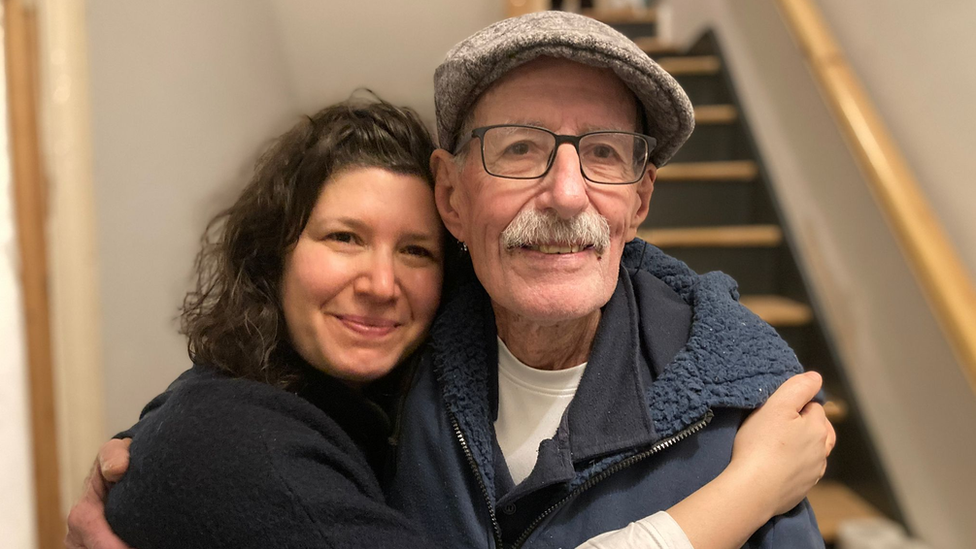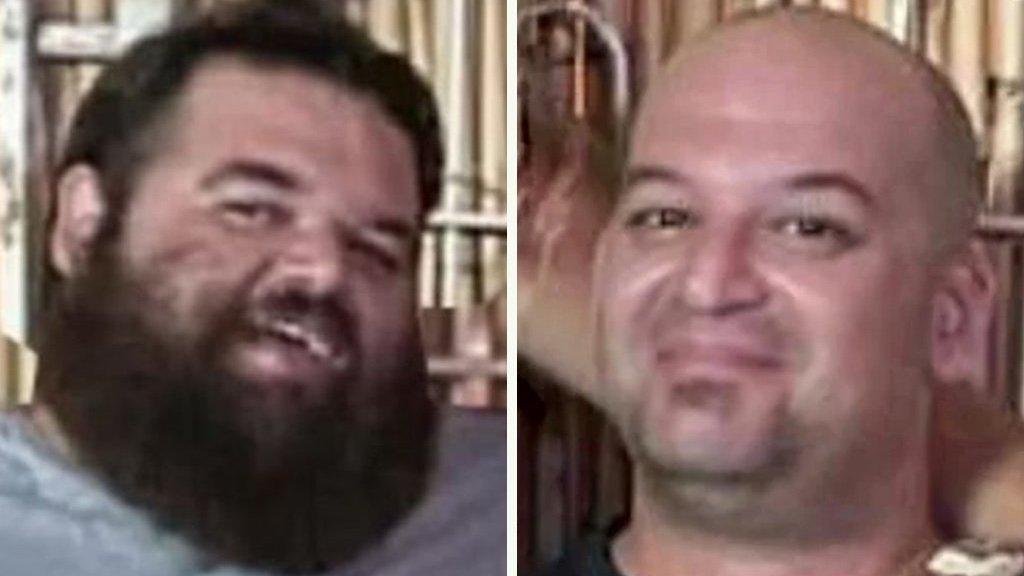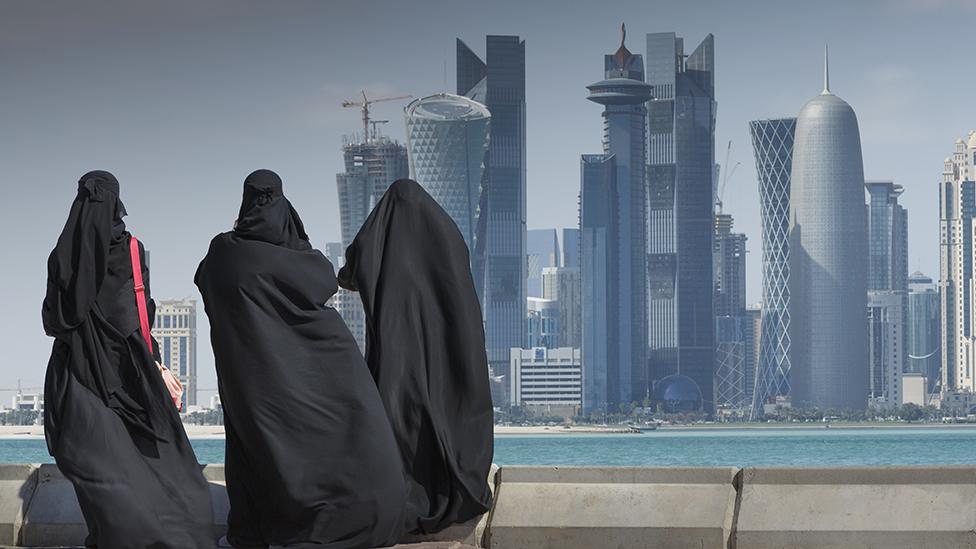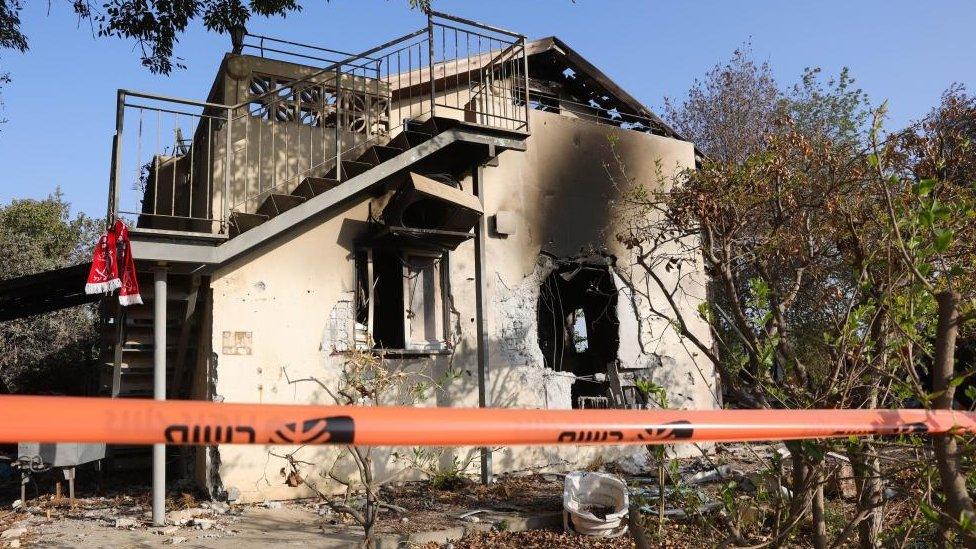Netanyahu meets Israeli hostages' families anxious over Gaza war plans
- Published
"We want to bring them home alive", says relative of hostage held by Hamas, at Tel Aviv vigil
Israeli Prime Minister Benjamin Netanyahu has met families of Israelis held hostage by Hamas, who have expressed concern about the intensifying attacks on Gaza.
The Missing Families Forum said the night when troops moved into northern Gaza had been "the worst" so far.
They complained about the impact of a ground operation on the well-being of the 230 hostages.
Mr Netanyahu has promised to do everything possible to bring them home.
Ahead of the meeting, the Hostages and Missing Families Forum said their relatives "are anxious about the fate of their loved ones and are waiting for an explanation" of the Israeli military's actions.
In response to the statement, Defence Minister Yoav Gallant said he would meet representatives of the group on Sunday.
During the meeting, Mr Netanyahu said that recovering the hostages was an "integral" part of the military's goals.
"Pressure is key. The greater the pressure the greater the chances," he said.
The hostages were taken by Hamas gunmen during an unprecedented attack on southern Israel on 7 October in which 1,400 people were killed.
After the meeting, Hamas said Israel would have to release all Palestinian prisoners to secure freedom for the hostages.
Mr Netanyahu said the idea of a swap deal involving hostages for prisoners had been discussed within the Israeli war cabinet but declined to give details.
At a separate news conference, Mr Gallant said Hamas had to be forced to the negotiating table but it was "very complex".
"The more military pressure, the more firepower and the more we strike Hamas - the greater our chances are to bring it to a place where it will agree to a solution that will allow the return of your loved ones," Mr Gallant told a news conference.
Those in captivity in Gaza include dozens of children and elderly people, as well as military personnel. At least 135 are foreign or dual nationals, including 54 Thais, 15 Argentines and two Britons, according to the Israeli government.
'My family is in Gaza': The solo vigil that sparked protests
Hamas - which is designated as a terrorist group by Israel, the UK and other powers - has so far released four hostages following mediation by Qatar and Egypt. Two elderly Israeli women were freed on Monday, while an American-Israeli woman and her daughter were freed on 20 October.
There had been speculation before Friday night's ground operation that Qatar-brokered negotiations over another release deal were accelerating.
But Israeli military spokesman Rear Admiral Daniel Hagari said on Saturday that there was "a deliberate desire of parties with interests, led by Hamas, to make cynical exploitation, psychological terrorism, and to influence our population which is in such a sensitive situation".
"Most importantly, when we have the information, we will provide it," he added. "Returning the hostages home is a supreme national effort. And all our activities, operational, intelligence, are aimed at realizing a goal."

More on Israel-Gaza war
Follow live: Latest updates
Explained: What is happening in Israel and Gaza, and why now?
History behind the story: The Israel-Palestinian conflict

Released hostage Yocheved Lifschitz, an 85-year-old grandmother who was kidnapped alongside her husband Oded from Kibbutz Nir Oz, told reporters in Tel Aviv on Tuesday that she "went through hell".
She described being hit by sticks on the journey to Gaza and being taken into a huge network of underground tunnels that "looked like a spider's web".
Mrs Lifschitz also said that most of the hostages were being "treated well".
On Thursday, the spokesman for Hamas's military wing, Abu Ubaida, said around 50 hostages had been killed in Israeli air strikes on Gaza.
He provided no evidence and it was impossible for the BBC to verify the claim. But the Israeli military has repeatedly said it has bombed Hamas's tunnels.
- Published27 October 2023

- Published27 February

- Published26 October 2023

- Published26 October 2023
